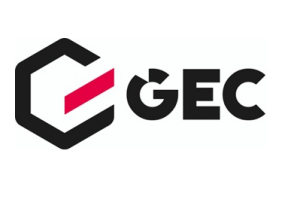DIW Berlin
Germany Pays the Least - so Change!
Germany should reform the taxation of passenger cars and fuels, with priority given to a gradual increase in diesel tax.
This is the conclusion of Uwe Kunert, transport economist at the German Institute for Economic Research (DIW Berlin). Kunert of DIW Berlin considers a reform of vehicle and fuel taxation advisable, as a systematic European comparison of all car taxes shows that Germany occupies a place in the lower third: Kunert does not consider car taxes in Germany to be sufficiently profitable, nor do they provide sufficient incentives for less polluting car traffic.
A European Comparison
Kunert has systematically analyzed and compared the passenger car tax system in 30 European countries (EU-28, Norway and Switzerland) in a new study. "There is a very varied design of the tax systems, with many different tax bases and, as a result, quite different tax burdens," Uwe Kunert sums up the result. For the majority of countries, the sum of taxes incurred on the purchase (value added tax, registration taxes and fees), the keeping (motor vehicle tax, insurance tax) and the use (taxes on fuels) of a medium-sized car in first use with an annual mileage of 15,000 kilometers is between 1,200 and 2,000 euros. For countries with even higher taxes, the registration tax - which does not exist in Germany - is decisive. In 26 countries, the bottom line of this example calculation also shows a lower tax burden for passenger cars with diesel engines than for those with gasoline engines. Among the countries surveyed, only the Eastern European EU countries, the Baltic countries, Switzerland, and Luxembourg levy lower taxes on car ownership and use than Germany. Taking into account the purchasing power parity in the respective countries, Germany, Luxembourg and Switzerland are at the very end of the scale.
"At least as far as taxes are concerned, car ownership and use in Germany costs significantly less than in most neighboring countries," Kunert comments. "Moreover, the various taxes are not profitable for the state from a fiscal point of view. At the same time, it appears that there are not enough incentives for less polluting technologies, because CO2 emissions in the transport sector are rising and air quality - especially in cities - is inadequate. The tax system is in urgent need of reform."
Reforming Energy and Motor Vehicle Taxes
Priority should be given to a gradual adjustment of the tax rate on diesel fuel to the level of carburetor fuel, Kunert said. In Germany, as in most European countries, diesel technology is strongly favored with a lower rate of energy tax per liter of fuel consumed (47 cents for diesel and 65.5 cents for petrol). This has helped diesel vehicles to a considerable market share.
In a further reform step, both tax rates should be raised. The energy tax, which is levied on every liter of fuel consumed, has not been increased in Germany since 2003. By contrast, most of the countries surveyed have raised their tax rates for petrol and diesel since 2009. The tax authorities should offset the additional income from this by, for example, reducing other taxes that do not take environmental consumption into account.
A third reform approach is the basis of assessment of the motor vehicle tax. The passenger car fleet has grown by around 13 percent since 2008. Nevertheless, the revenue from the motor vehicle tax is stagnating because it is based on the engine capacity of the vehicles and official data on CO2 emissions. Both displacement and stated CO2 emissions are reduced. The official data on emissions are much lower than the quantities actually emitted. "The basis for the motor vehicle tax is eroding, and the amount of the tax in no way reflects the fact that more and more cars are on the German roads. Instead, weight or engine power would be suitable as an alternative basis for calculation," says Uwe Kunert. "Both are objectively measurable, both are related to environmental aspects, and both are increasing continuously."







